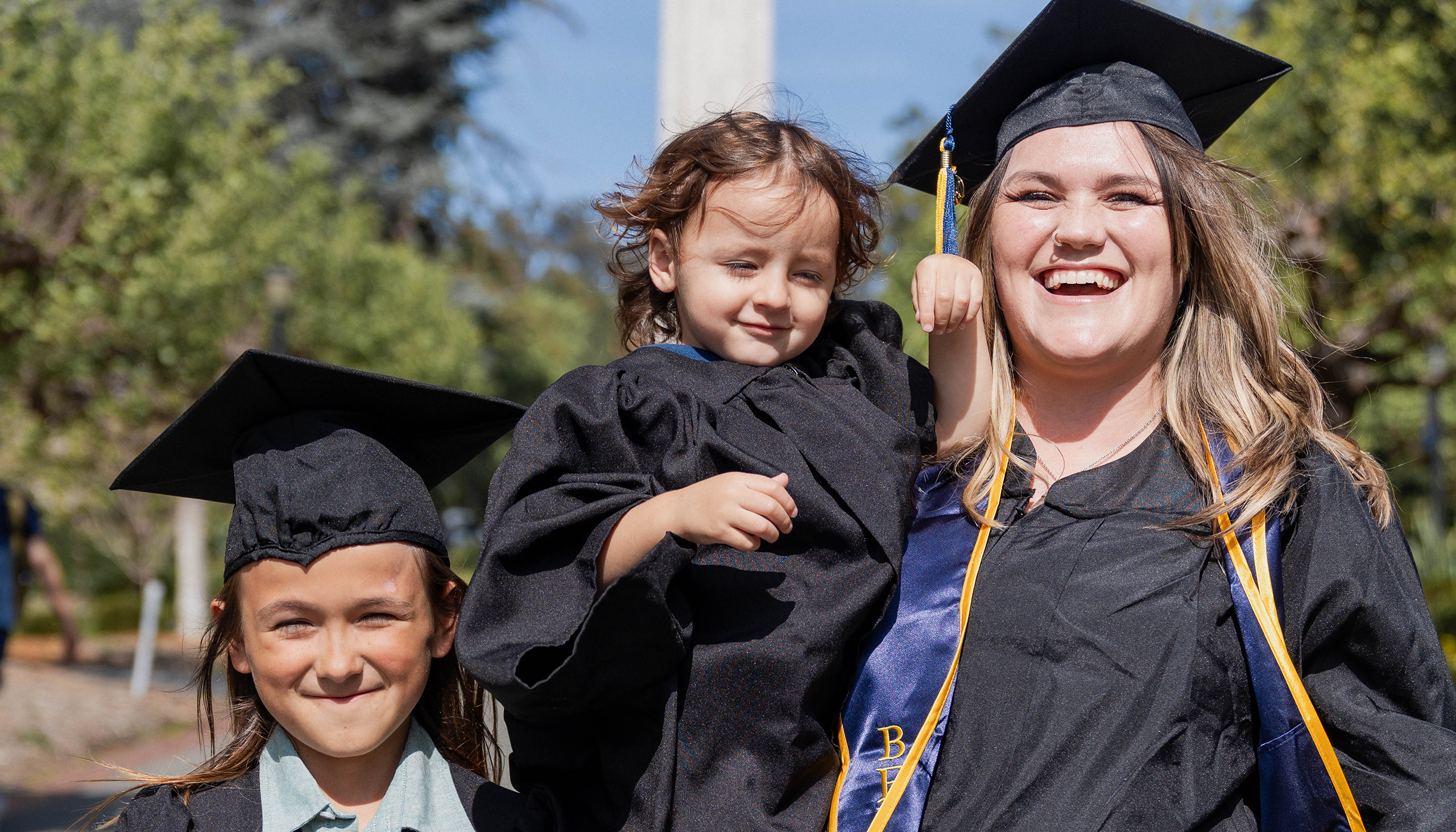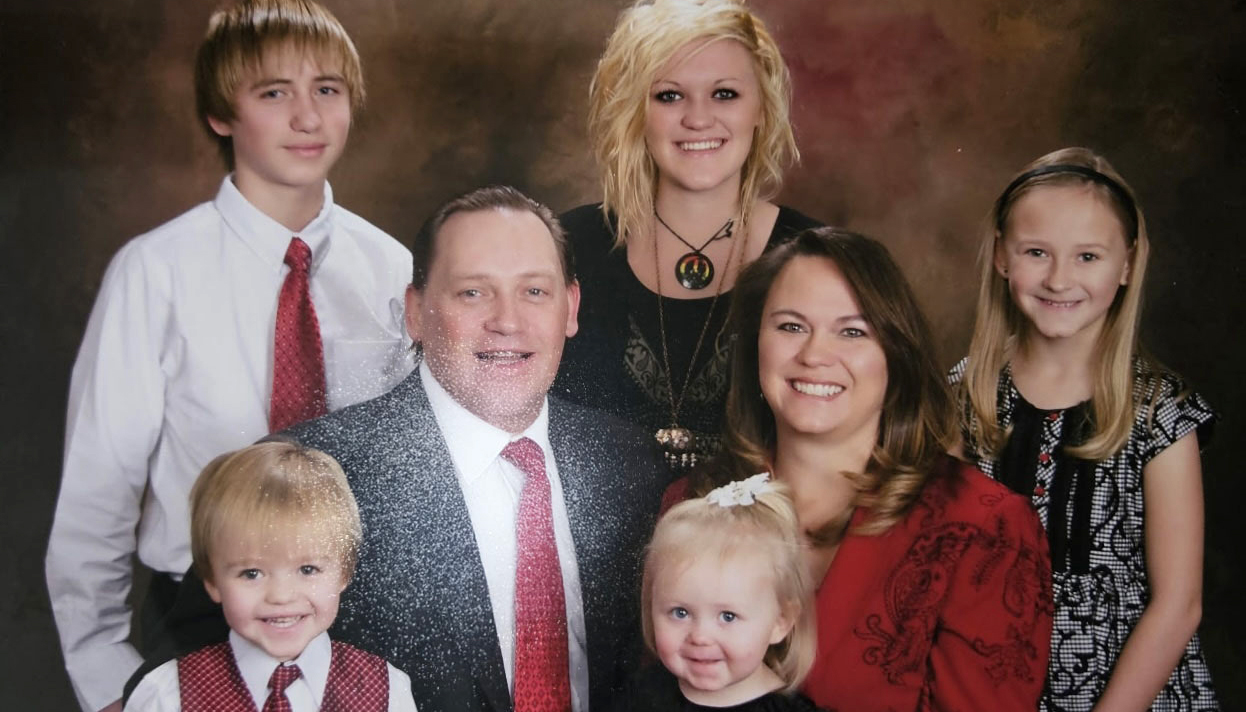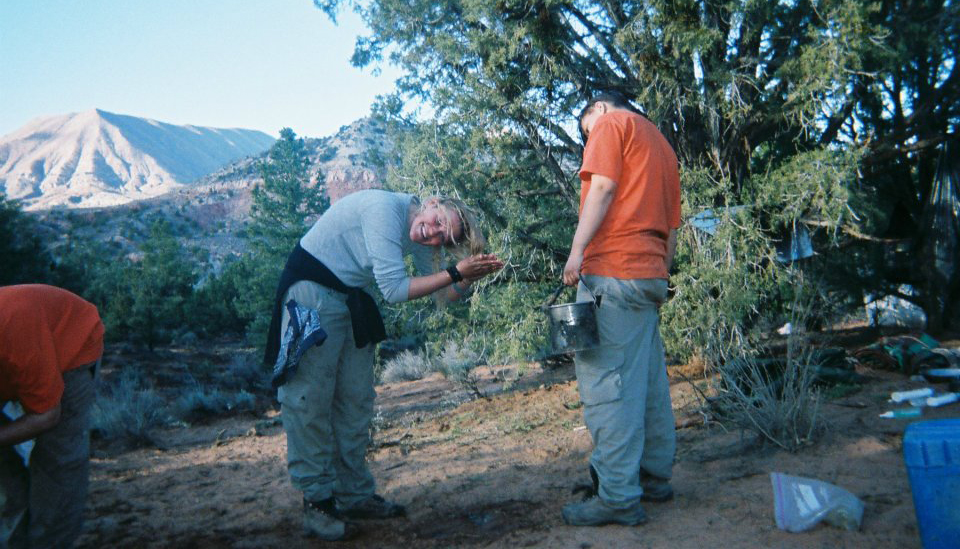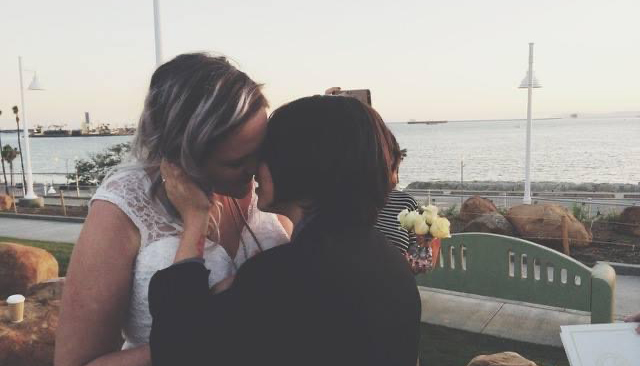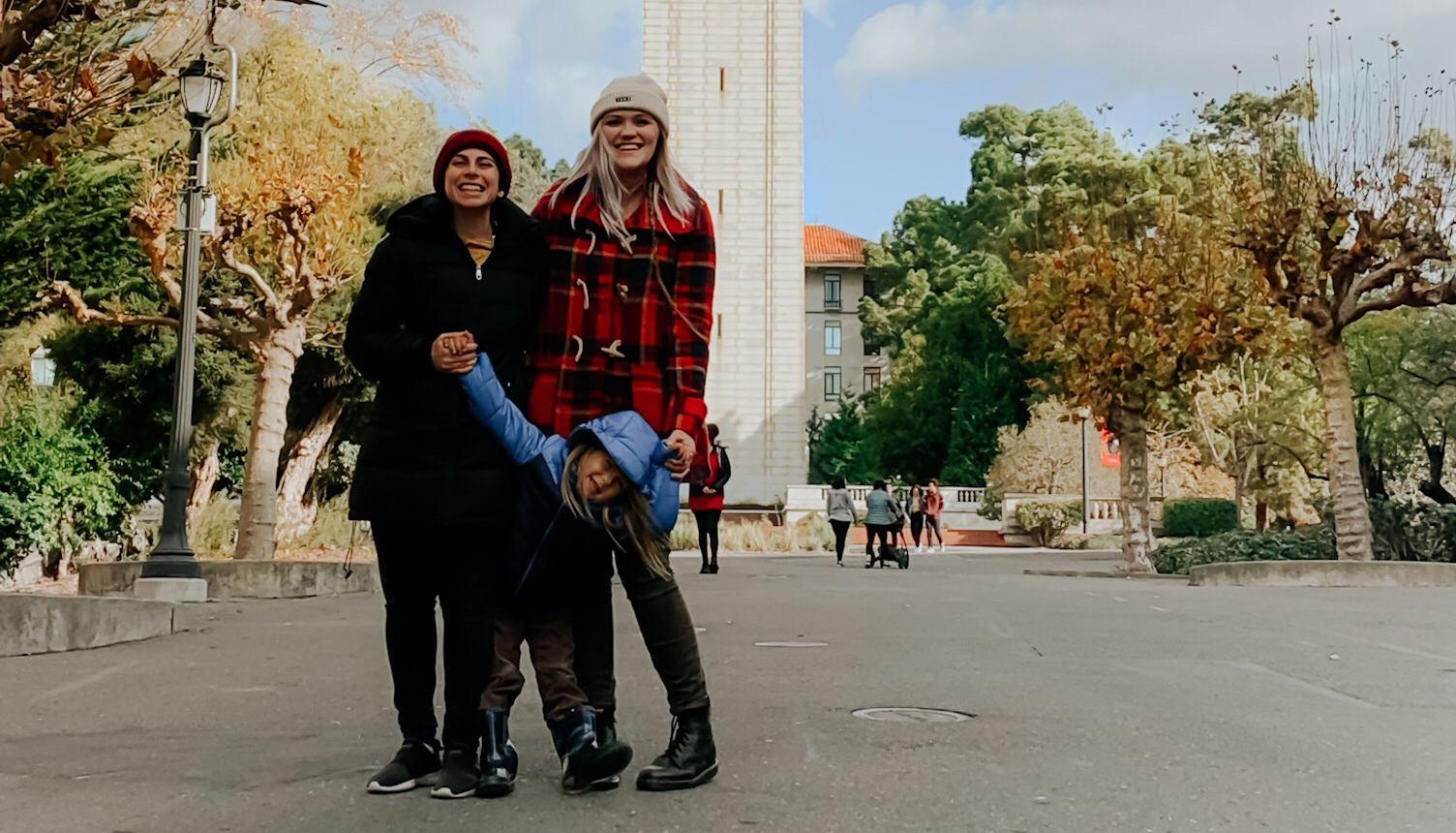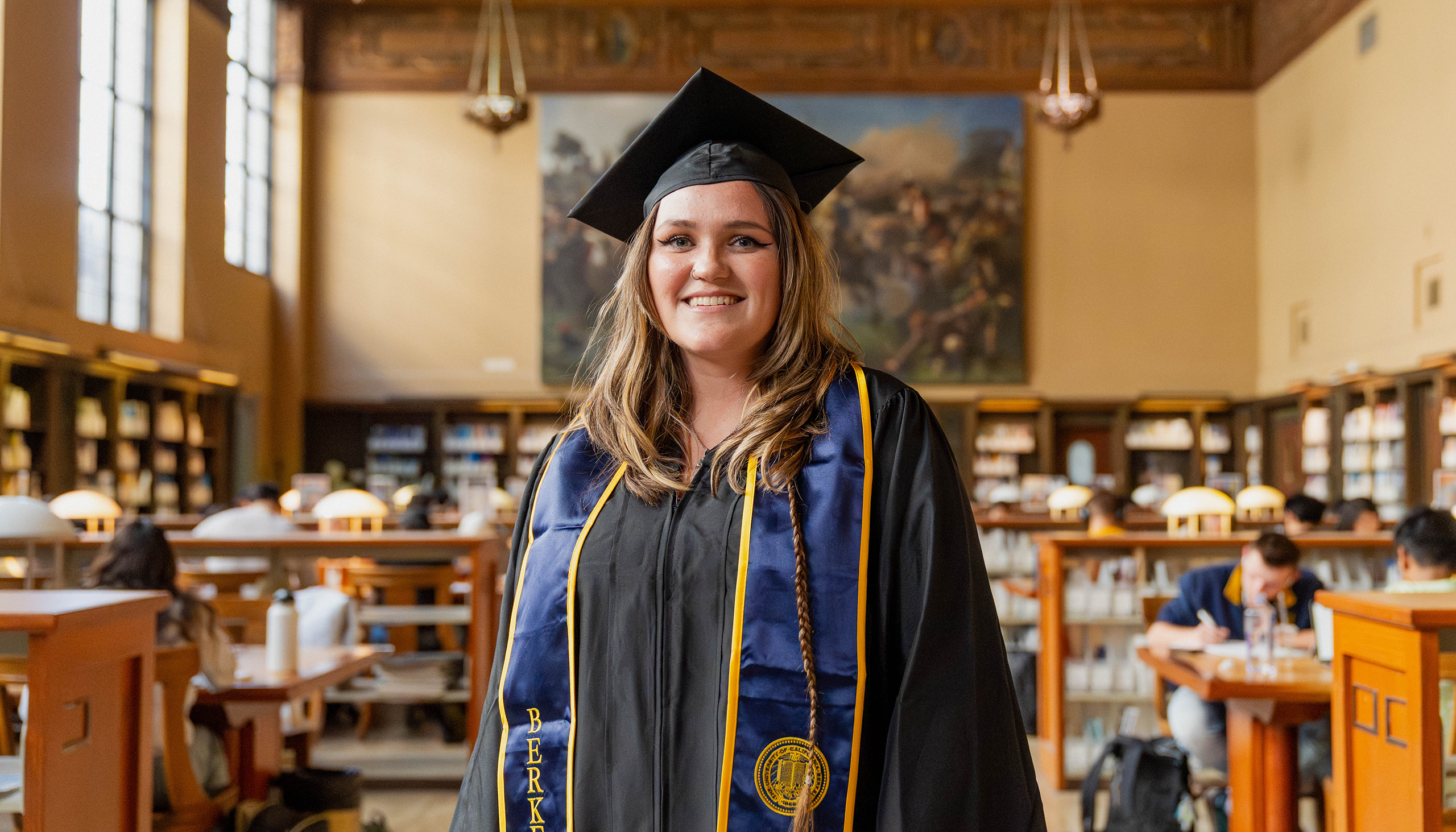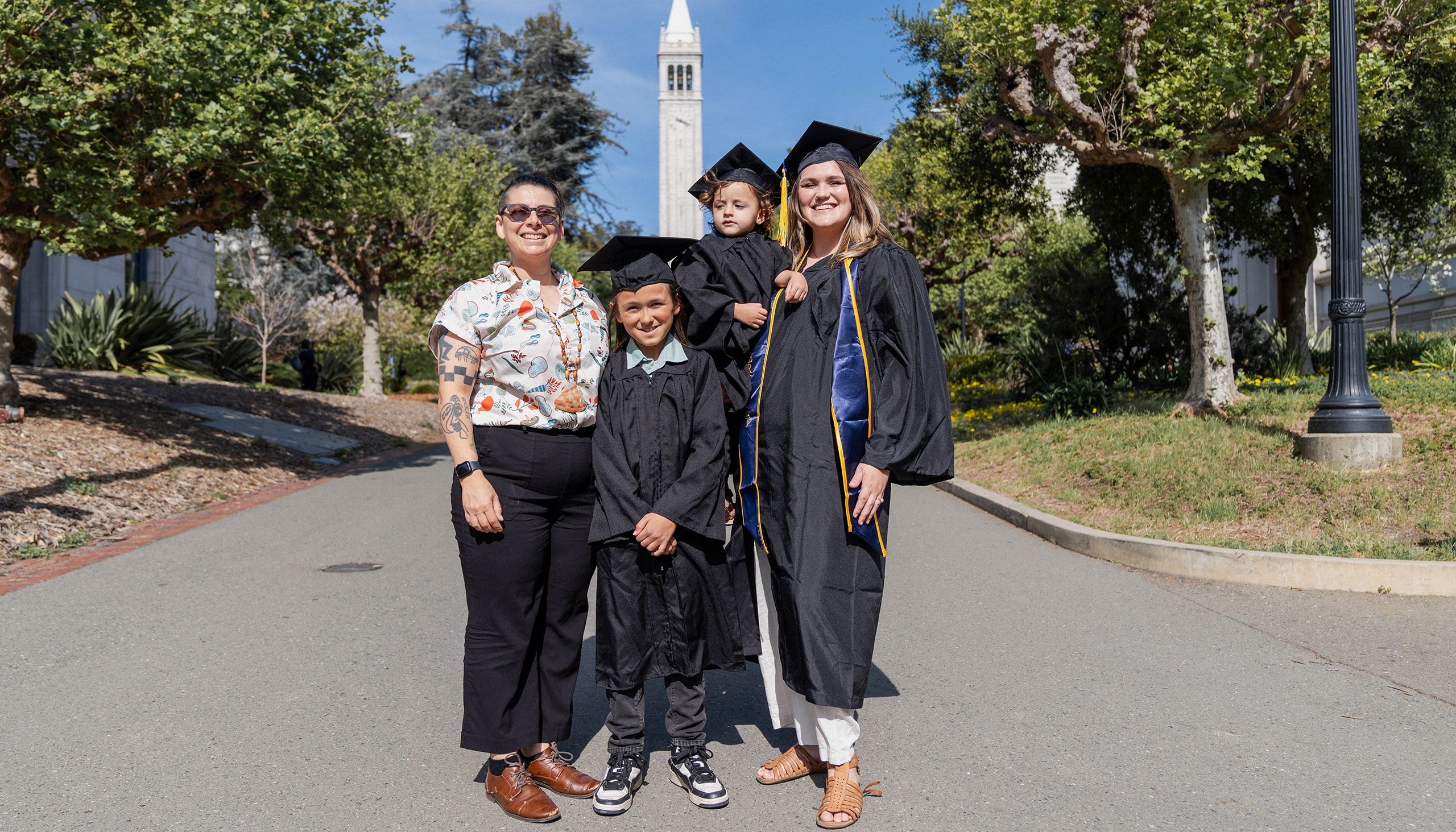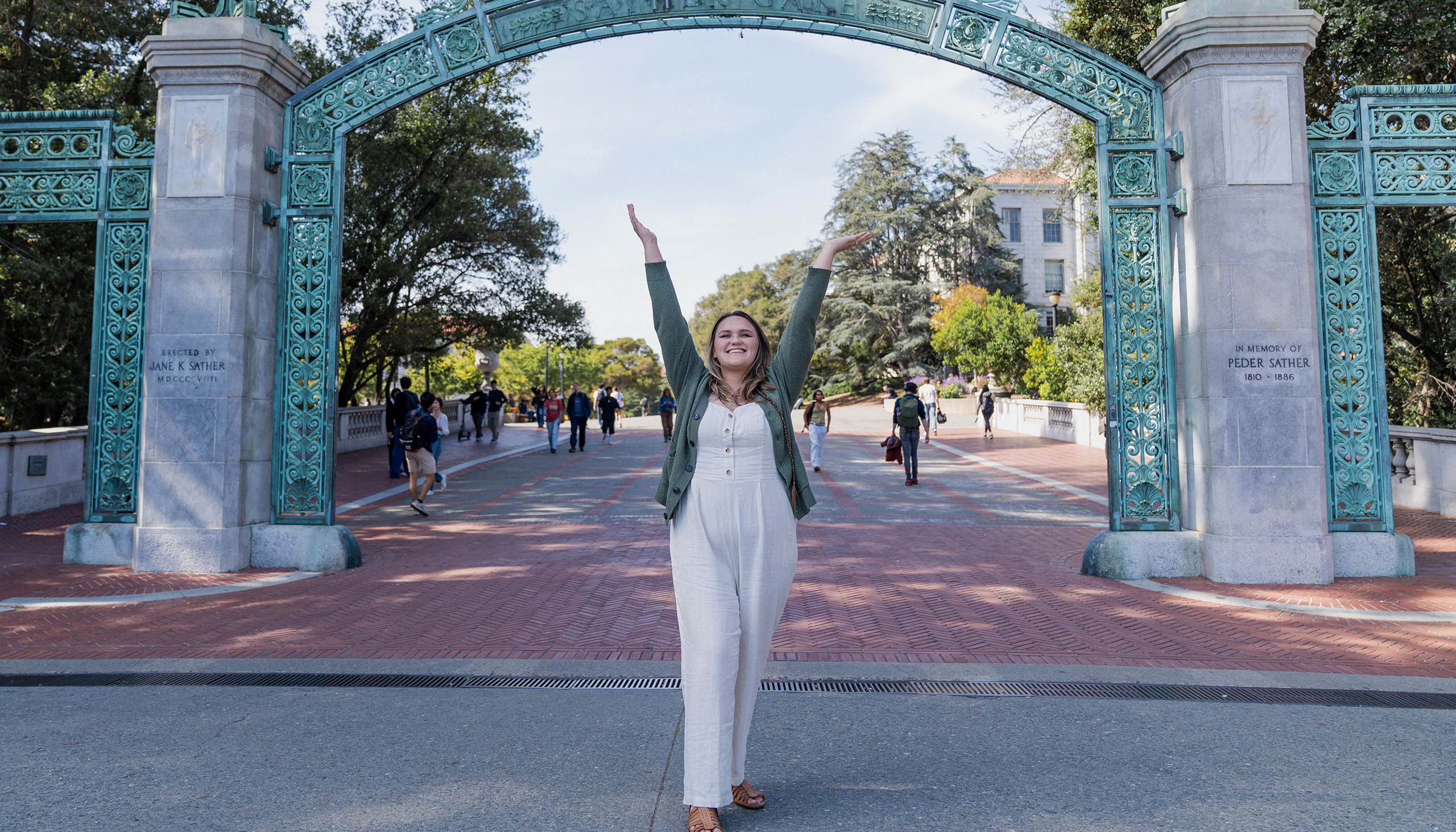After wilderness therapy, this graduate found her own path at UC Berkeley
Changed by a wilderness program as a teenager, student parent Emily Thompson is graduating with a bachelor’s degree in film and media this May. “The wild isn’t this daunting, unknown place,” she says. “It is all home.”
May 6, 2025
This I’m a Berkeleyan was written as a first-person narrative from a UC Berkeley News interview with student Emily Thompson, who’s graduating this May with a major in film and media and a minor in Scandinavian studies.
“I grew up one of five kids in a very conservative, Mormon family in a small town in Utah. My ancestors were all Mormon pioneers going all the way back to the beginning of the church. It was the culture we lived in.
When I was around 12, I started learning more about the history of the church. A lot of it didn’t make sense to me — like that Black people weren’t allowed full participation until 1978. By the time I realized I was queer as a teenager, I just didn’t have the belief in it anymore. I was in love, and I didn’t want to be a part of something that wasn’t OK with that. (I want to make it clear that I adore my parents, and I very much try to respect their religion and beliefs. It’s just not for me.)
When my parents found out I was queer at 16, they didn’t take it well. I was also doing a lot of other things that were scary for them — you know, teenager things.
They ended up sending me away for my senior year of high school to a wilderness therapy program. It was pretty brutal. I spent three months backpacking in southern Utah in the snow without a tent. It was freezing; a lot of the girls got frostbite. I tend to be a really positive, optimistic person, so I tried to make the best of it and get through it.
When I left at 18, I was like, ‘Thank God,’ but I also felt a sense of peace. It was a really hard transition back into society; I came out a completely different person. For the first two weeks at my sober living house in Newport Beach, where I had to live as a program requirement, I slept outside because I just couldn’t sleep indoors.
After I earned my high school diploma from continuation school, I started an art magazine with a friend of mine. That changed my life. It was a 64-page magazine that we printed and completely made ourselves. We did photoshoots with local brands, interviews, funny pages, all kinds of things.
I transferred to Berkeley in 2020 from Long Beach City College. For the past five years, I’ve lived at University Village with my wife and two kids. My wife and I both got into 13 different schools, and a big reason we chose Berkeley is for the parent resources. The Student Parent Center is phenomenal. As a student parent, you can take as few as six units a semester and still be considered full-time, so it gave me time to explore what I’m interested in studying in my academic career. My oldest son has been able to be here, in the same house and same school, from kindergarten through fourth grade.
We felt so safe and stable that we decided to have another baby. We planned it so I had the baby during winter break and didn’t miss any school. I turned in my final for one of my film classes while I was in labor, then gave birth the next day. That was pretty wild. I was even able to keep my 4.0 GPA.
In the Department of Film and Media, I’ve worked with a lot of cool faculty and lecturers, and have really developed my academic writing. I recently found out I received the Departmental Citation Award in recognition of my distinguished undergraduate work. I am shocked and thrilled.
During my time at Berkeley, I also spent a lot of time working with the Art of Writing program in the Townsend Center for the Humanities as a tutor and social media manager.
Last summer, I attended the Consortium of the Humanities Centers and Institutes, hosted by the Townsend Center, as an early career scholar. I got to meet scholars from all over the world who are highly successful in the humanities, like Judith Butler, which was the highlight of my Berkeley experience.
I’ll be starting a Ph.D. film program at UC Santa Cruz in the fall. My wife and children are native to that area, they’re members of the Amah Mutsun Tribal Band. I’ll be spending a lot of time with the tribe and my wife, who’s a legal intern with the Amah Mutsun Land Trust, learning about stewardship and rematriation of the land.
I’m really hoping to work with Professor Martin Rizzo-Martinez, who has been working on a project called The People Who Lived Here, telling the stories of Indigenous people who were held at missions. I want to further his work on Mission San Juan Bautista, where my wife and children’s ancestors were held, to tell stories of their descendents and of the living culture of the Amah Mutsun.
Through Indigenous leadership, as well as my own experiences and research, I’ve learned how Americans gravitate toward this idea of ‘the wild’ as this daunting, unknown place, whereas Indigenous people don’t see it that way. It is all home. We’re all part of an ecosystem that we either steward or destroy. These are things I’ve been thinking about, and hope to think more about in grad school.”
